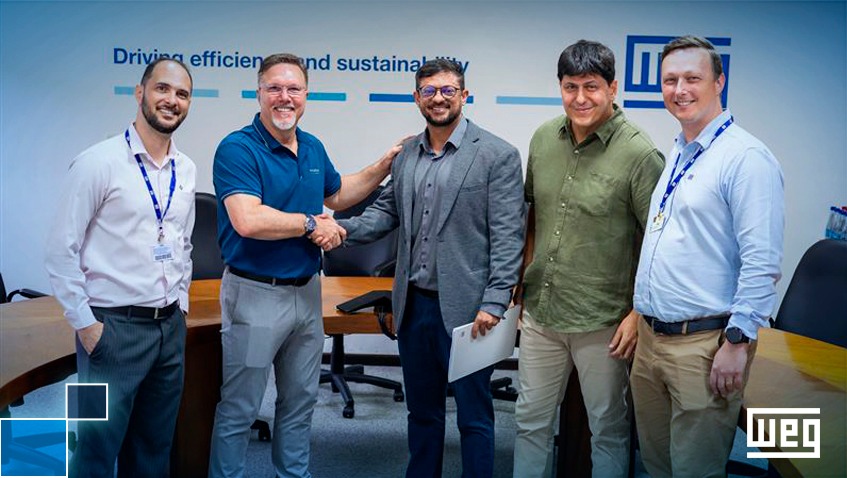MVISIA and PPI Multitask, companies were acquired by WEG in 2020 to accelerate the development of technologies aimed at Industry 4.0. Today, they are fundamental sponsors of Fábrica do Futuro, USP's Innovation laboratory, which simulates a real factory production with the purpose of research, teaching and demonstration of Industry 4.0 concepts.
Fábrica do Futuro has just been the first laboratory in Latin America to integrate the International Association of Learning Factories (IALF), which is the main international academic network of laboratories known as Learning Factories, with focus on training highly qualified personnel to work in Industry 4.0.
The new partnership allows the USP laboratory to integrate joint working groups into the international network, increasing the exchange of best teaching practices and the development of new technologies for the digitization of manufacturing. The USP laboratory counts with the support of partner entities and companies such as WEG, which encourages the generation of knowledge and provides equipment for testing prototypes and projects that help transform the acquired knowledge into new solutions.
“By supporting research projects, we are not only contributing to the training of university students, but also strengthening an entire technological chain that is only maintained with the participation of well-qualified professionals, well-designed studies and proven results. That's how MVISIA was born and that's how we want other projects to conquer their place in the market”, explains Carlos Bastos Grillo, WEG Digital Business Director.
Fábrica do Futuro is an integrated environment for sharing ideas and research that helps with the challenges encountered in the day-to-day of the 4.0 journey. The partnership between the company and the university also makes it possible to expand the use of WEG solutions, such as the PPI-Multitask PC-Factory MES, which is integrated into the MVISIA vision system, available for student’s research.
“WEG's support through MVISIA and PPI-Multitask has been fundamental since the beginning of the implementation of Fábrica do Futuro at USP. In this type of laboratory, the university-company partnership is essential so that future professionals can have access to the most up-to-date technological resources and can carry out Research and Development on real problems in the industry”, comments Prof. Eduardo Zancul from the Polytechnic School of USP, coordinator of the initiative.
The important partnership between business and university
MVISIA is an example of the application of scientific knowledge combined with entrepreneurship. To arrive at the ideal business model, the group had a long prototyping process. It was born in 2012, at the Innovation Center, Entrepreneurship and Technology (CIETEC), USP's incubator, as a startup focused on the development of technologies associated with Computer Vision and Artificial Intelligence. In 2020, MVISIA was acquired by WEG.
The model of startups focused on innovation and entrepreneurship has gained strength in recent years. Like other Brazilian universities, USP has an excellent performance in generating knowledge and entrepreneurial initiatives that are created and developed by students who have had access to quality education.



